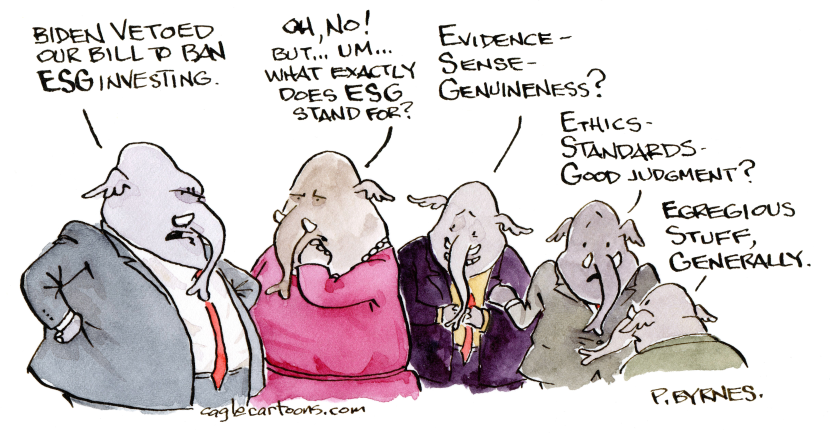American education is getting better

Fear of the COVID virus may be largely gone, but the consequences of the mistakes made trying to combat its spread will be with us for a long time.
This is particularly true in the education space. Post-pandemic studies are now confirming the school closures, ordered by politicians bending to pressure from teachers’ unions, produced a learning gap that is unlikely to close. The 2022 National Assessment of Education Progress found, as one example, that math scores for 13-year-olds experienced their biggest decline in 50 years.
The fight to keep schools open – public and private – reached a state of alarming combativeness. Orthodox Jews in New York City who unsuccessfully tried to defy orders closing their schools issued by then-Gov. Andrew Cuomo found themselves intimidated and threatened with arrest.
Cuomo was not alone in going overboard. The countless closures and failed experiments with masking and home-based learning led parents to rally for their children’s right to go to school. That cause continues today.
Parents understand as never before the scope of change needed. For the first time since the phrase “school choice” began to be heard in Wisconsin back in the 1980s, the war on “Big Education” is finally out in the open.
The latest campaign started in West Virginia. After persuading people in urban centers and rural communities alike how alternative education opportunities would open the doorway to success for school children, the legislature enacted a robust program tying state education funding to students rather than school systems.
Similar expansions are now occurring across the country under the rallying cry, “Fund students, not systems.” Republican state legislators joined by a very few brave Democrats willing to stand up to the National Education Association and the American Federation of Teachers are pushing education-improving reforms that stand in sharp contrast to the empty promises the education establishment routinely fails to deliver.
State-funded scholarships are catching on. Education funding support is making it possible for the children of low- and middle-income parents to have the ability to escape failing schools the children of the privileged have.
In Arizona, when Democratic Gov. Katie Hobbs (who was elected last year with the backing of the teachers’ unions) threatened to roll back the expansion of education savings accounts that were enacted thanks to the leadership of outgoing Republican Gov. Doug Ducey, it was pressure from families already benefiting from Ducey’s reforms that forced her to back down.
In North Carolina, a Democratic state legislator crossed the aisle – giving the Republicans a veto-proof majority in the state legislature – in protest of the opposition to education savings accounts displayed by her fellow Democrats, including North Carolina Gov. Roy Cooper.
Cooper – who sent his daughter to private school – responded by declaring a “state of emergency” in education. It’s a meaningless gesture because the parents in his state know that one already existed. Too many schools had failed too many children to allow business as usual to continue.
The details are still being worked out, but an expanded scholarship program for K thru 12 students will probably be in place by the beginning of the next school year in North Carolina over Cooper’s veto as it will in Iowa, where Republican Gov. Kim Reynolds made it possible for more than half a million students to participate.
In Arkansas, newly-elected GOP Gov. Sarah Huckabee Sanders made the expansion of education savings accounts one of the first things she did. That’s half a million more students eligible for opportunity while in Florida, GOP Gov. Ron DeSantis led the fight to expand programs that started under Gov. Jeb Bush so that more than 3 million students will have the opportunity to attend better schools than the ones they are assigned because of where they live.
It doesn’t end there. Families in North Dakota and Indiana and Tennessee are now eligible for vouchers while Oklahoma and Nebraska residents can get tax credits. In other states, like Louisiana, New Hampshire, Texas, Ohio, and Pennsylvania, proposals to fund student scholarships instead of schools may still come into being before the start of the next school year.
The education revolution has begun, with parents leading the way. In a few years, it will be possible to prove that parents can rescue their children from failing schools simply by making it affordable to move them to better ones.
–
Copyright 2023 Peter Roff distributed by Cagle Cartoons newspaper syndicate.
Peter Roff is a media fellow at the Trans-Atlantic Leadership Network, a former columnist for U.S. News and World Report, and senior political writer for United Press International. Contact Roff at [email protected], and follow him on Twitter @TheRoffDraft.








